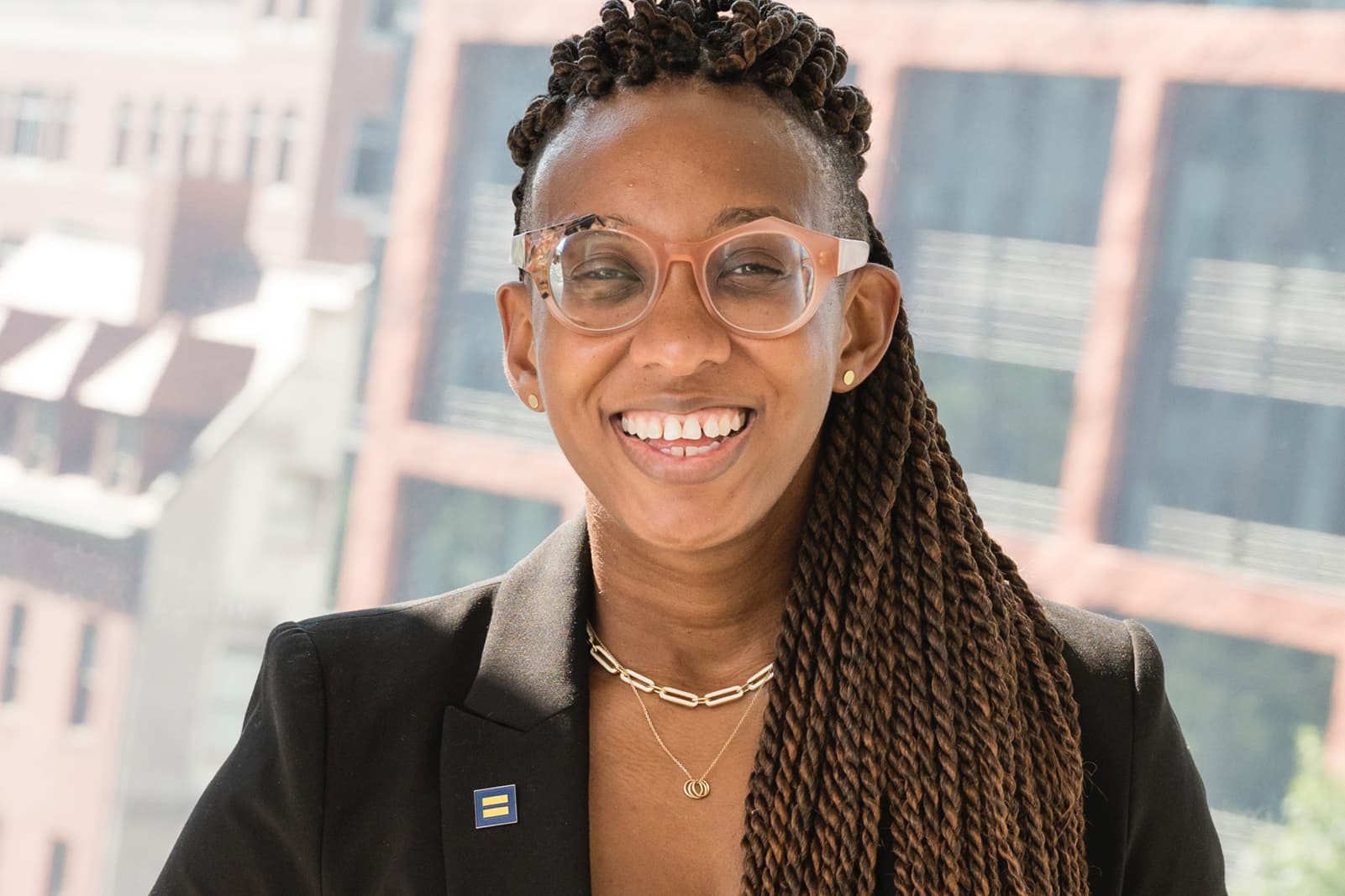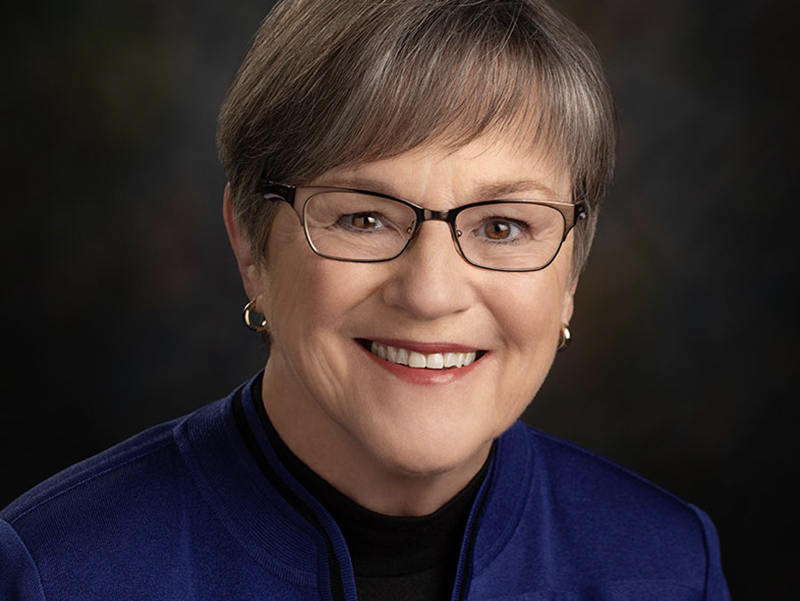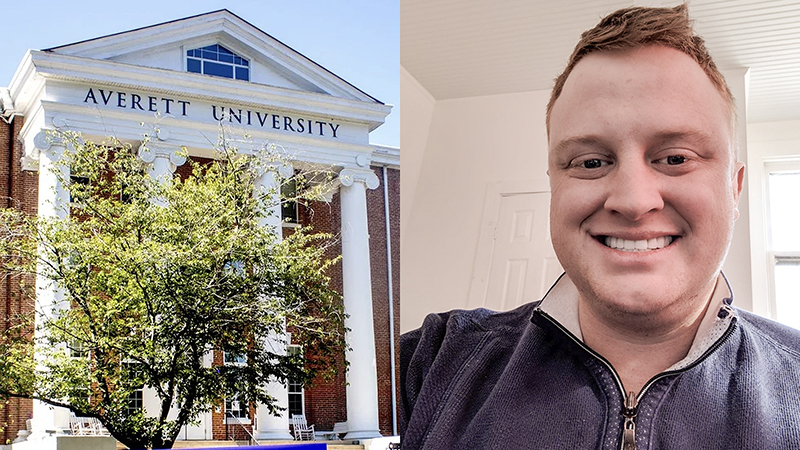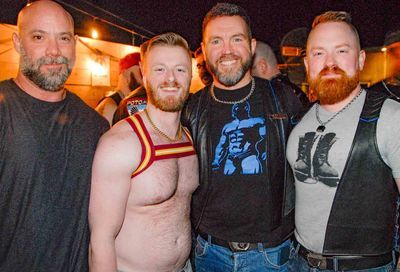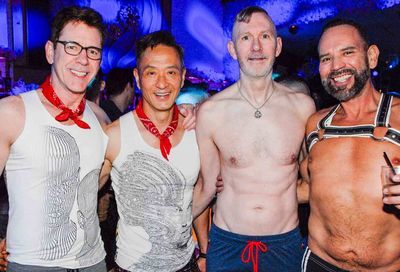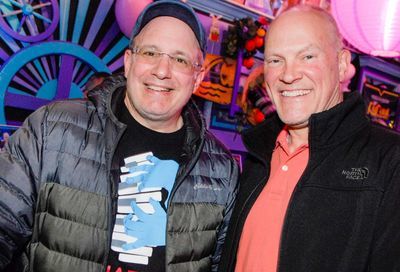Virginia Elections: LGBTQ Rights Are at Stake on the Ballot
As Election Day approaches, LGBTQ rights depend on whether Democrats gain control of Virginia's General Assembly

Two years ago, Virginia Democrats shocked the nation when they bested Republicans in the gubernatorial, lieutenant governor, and attorney general races, and changed the House of Delegates from a 2-1 deficit to coming within a hair of sharing control with the GOP.
In dramatic fashion, control of the lower chamber literally came down to chance, with the Virginia Board of Elections forced to draw names from a bowl to determine a victor in an impossibly tight race. Republican David Yancey ultimately won, putting Republicans in control by a slim two-seat margin — and cementing two more years of LGBTQ rights being continually sidelined by GOP lawmakers.
This year, there are no statewide offices on the ballot, but Democrats are determined to wrest control of the General Assembly from Republican hands — not only in the House, but in the Senate, where the GOP enjoys a narrow 21-19 edge. Should Democrats pick up even one Senate seat, any party-line votes during the 2020 or 2021 legislative sessions would be broken by the lieutenant governor, a Democrat.
Eager to take control in a state where they’ve effectively been shut out of power for the better part of two decades — and, aided by a court-ordered redistricting that resulted in a reshuffling of Democratic and African-American voters into some Republican-held downstate districts — Democrats appear poised to strike this year. And that means potentially life-changing results for LGBTQ Virginians.
On the campaign trail, Democrats have begun offering up promises about the type of bills they will pass if allowed to set the agenda, including one that would prohibit anti-LGBTQ discrimination in the state. While lawmakers in the Senate have voted in a bipartisan fashion to approve standalone bills tackling housing discrimination or protections for LGBTQ public employees, such measures have been bottled up in key House subcommittees — stacked, of course, with Republican delegates from rural or conservative districts — under the leadership of Speaker Kirk Cox (R-Colonial Heights), Majority Leader Todd Gilbert (R-Woodstock), and Tim Hugo (R-Clifton).
Frustrated at the lack of change, equality advocates are no longer content to settle for piecemeal bills. In advance of next year’s legislative session, they’ve begun touting a bill, introduced previously by Del. Mark Levine (D-Alexandria), that would bar anti-LGBTQ discrimination not only in public employment or housing, but private employment, banking, insurance, public contracting, and public accommodations.
Most Democrats have embraced the idea of a comprehensive nondiscrimination bill, and have even used it in their pitch to LGBTQ and Democratic-leaning voters to help get people excited about turning out for an off-year election.
“As always, in any election, it really comes down to turnout,” says Kathryn Gilley, communications director for the Democratic Party of Virginia. “When turnout is higher, Democrats tend to do better.”
Gilley notes that in “off-off-year” election years, like 2019, where no statewide office is on the ballot, turnout tends to drop significantly, particularly among Democratic-leaning voters. But she says that in the wake of the 2016 election, a number of voters, fueled by their dislike of President Trump and the Republican Party, appear to be energized in a way they weren’t in 2015 or 2011.
Rachel Bitecofer, assistant director of the Wason Center for Public Policy at Christopher Newport University in Newport News, Va., describes the phenomenon as “negative partisanship.”
“Negative partisanship refers to the emotions that partisans feel towards members of the opposition party, and the general notion that people are motivated to vote, at least in part, by fear of the other party winning the election,” says Bitecofer.
And while age-old political wisdom says that candidates must promote a positive message to motivate potential supporters to the polls, negative partisanship — taking the form of outright dislike of the opposition party or fear of its agenda — can also be a strong motivator in a polarized political atmosphere. In fact, Bitecofer criticizes Democrats, saying they should have done more to have a unified message for all of their candidates to rally around, as well as try to “nationalize” the election by playing on Democrats’ dislike of President Trump and tying local Virginia Republicans to the national GOP.
“It’s not like the Democratic Party of Virginia is especially inept at that messaging. This is a partywide ineptness,” says Bitecofer. “Research shows voters respond to nationalized messaging. These voters that are iffy about turnout because they don’t give two shits about state politics or state legislative politics, you have to give them a reason to care. Republicans do everything nationalized. That’s why Donald Trump comes in to campaign. That’s why Mike Pence comes in. That’s why Republicans typically have better turnout.”
Based on the makeup of legislative districts and the overall political atmosphere in Virginia, Bitecofer says that 2019 should ideally be a successful year for Democrats, who have multiple paths to pick up the one Senate seat and two House seats they need to take control of each chamber.
“We see Democrats with a natural enthusiasm advantage in survey data,” she says. “We see Democrats saying that they’re more likely to vote. We see Democrats really having a much more robust fundraising experience…. We see a big, big surge in registration data where the off-year registration data for September was on pace to match last year’s midterm, which is basically unheard of. And we see strong activity amongst young people, especially in absentee ballot requests. So those things all suggest that Democrats are at a pretty good spot heading here into Election Day. But we’ll see. Democratic fortunes hinge completely on whether or not they have successfully turned out Democratic voters. End of story, full stop.”
In short: If Democrats can’t excite enough people to actually vote, advancing LGBTQ rights in Virginia will be dead in the water for another two years.
It’s why the Human Rights Campaign has gotten involved in the fight to flip the Virginia General Assembly, based on the premise that a comprehensive nondiscrimination bill will only be brought up for a floor vote if Democrats are in control. The LGBTQ rights organization has made an undisclosed six-figure investment in the state to fund canvassing, digital, and direct mail programs aimed at encouraging self-identified “pro-equality” voters to show up on election day.
In the Senate, HRC is backing seven Democratic challengers, all in competitive seats held by Republicans, as well as incumbent Democrats Jennifer McClellan in Richmond and Adam Ebbin, the commonwealth’s only out LGBTQ senator, in Alexandria.
In the House, HRC is backing ten Democratic challengers and eight incumbents, including all four currently out LGBTQ delegates: Mark Levine, Mark Sickles in Franconia, Dawn Adams in Richmond, and in Manassass Danica Roem, who in 2017 became the first out transgender person to be elected to a state legislature.
Del. Eileen Filler-Corn (Fairfax Station), the Democratic leader in the House of Delegates, believes enthusiasm among Democratic-leaning voters is even greater than it was two years ago. She points to volunteers who have come out to knock on doors and speak with voters in the middle of 100-degree heat or torrential downpours as just a few of the many indicators pointing to Democratic enthusiasm.
Filler-Corn attributes part of this to frustration with the General Assembly for killing Democratic bills to prohibit discrimination, promote gender equality, address environmental issues, or institute gun reform.
“I think a lot of folks are fed up with what they’ve seen, when bills are getting killed because certain issues come up, and never making it to the floor,” she says. “Virginians are ready for Democrats to govern, because we’re on the right side of the issues and they feel that we are going to move Virginia forward and make a difference. And they feel strongly that the other side has failed to lead.”
With respect to LGBTQ people, Filler-Corn says Democrats are the champion of issues the community cares about.
“Equality is one of the cornerstones of who we are as Democrats. We are the party that has introduced nondiscrimination legislation year after year,” she says. “House Democrats have pushed for reforms to ensure Virginia LGBTQ residents can live their lives without fear of discrimination. The Republicans have fought us on those bills, thereby leaving many people vulnerable to housing discrimination, employment discrimination, insurance discrimination against transgender individuals. We’re very excited because in the majority we can pass those bills to ensure everyone is treated equitably.”
Gilley, the Democratic spokeswoman, is more blunt in her assessment of the GOP record.
“If Republicans were going to do something to help the LGBTQ community, they would have done it by now,” she says. “They have had a majority in the House of Delegates for 20 years…. We’ve seen their stance on LGBTQ rights, and it’s not good.”
The Republican Party of Virginia did not respond to an inquiry seeking comment on its election-year pitch to LGBTQ voters as of press time.
Virginia elections will take place on Tuesday, Nov. 5. To check if you are registered to vote and find out where to go to vote, visit www.elections.virginia.gov.
Support Metro Weekly’s Journalism
These are challenging times for news organizations. And yet it’s crucial we stay active and provide vital resources and information to both our local readers and the world. So won’t you please take a moment and consider supporting Metro Weekly with a membership? For as little as $5 a month, you can help ensure Metro Weekly magazine and MetroWeekly.com remain free, viable resources as we provide the best, most diverse, culturally-resonant LGBTQ coverage in both the D.C. region and around the world. Memberships come with exclusive perks and discounts, your own personal digital delivery of each week’s magazine (and an archive), access to our Member's Lounge when it launches this fall, and exclusive members-only items like Metro Weekly Membership Mugs and Tote Bags! Check out all our membership levels here and please join us today!




